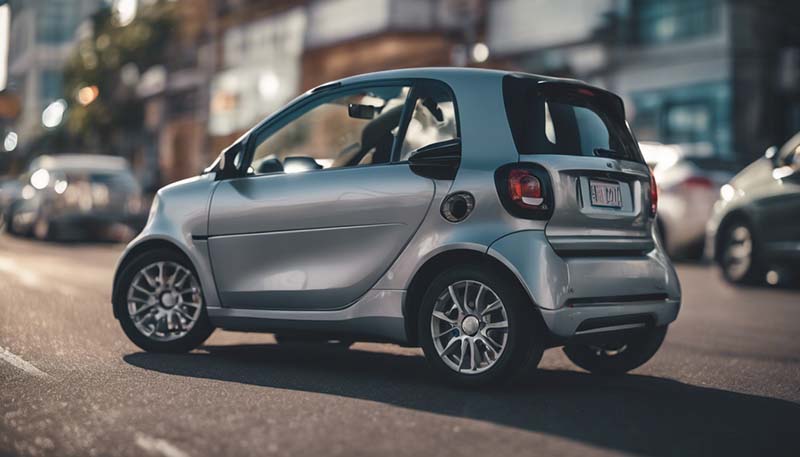The Rise of the Smart Car: A Look at the Latest Innovations in Automotive Technology
Introduction
The automotive industry is undergoing a significant transformation with the rise of smart cars. These vehicles are equipped with advanced technologies that not only enhance the driving experience but also improve safety, efficiency, and connectivity. In this article, we will explore the latest innovations in automotive technology that are shaping the future of smart cars.
Autonomous Driving
The most notable innovation in smart car technology is the development of autonomous driving capabilities. Self-driving cars use a combination of sensors, cameras, and artificial intelligence to navigate roads without human intervention.
Sensors and Cameras
Advanced sensor technology, including LiDAR, radar, and ultrasonic sensors, allows self-driving cars to perceive their surroundings in real-time. Cameras mounted on the vehicle capture visual data, which is processed by AI algorithms to identify and interpret road signs, traffic signals, and other vehicles.
Advertisement
Artificial Intelligence
AI plays a crucial role in autonomous driving by processing the data collected by sensors and cameras. Machine learning algorithms enable the car to make decisions, such as when to change lanes, how to navigate through traffic, and how to respond to unexpected situations.
Electric Vehicles (EVs)
Electric vehicles are an essential part of the smart car revolution. They offer several advantages over traditional internal combustion engine vehicles, including lower emissions, reduced operating costs, and the potential for integration with renewable energy sources.
Battery Technology
Advancements in battery technology have led to significant improvements in the range, performance, and charging times of electric vehicles. New battery chemistries and designs are being developed to further enhance these capabilities.
Charging Infrastructure
The expansion of charging infrastructure is critical for the widespread adoption of electric vehicles. Innovations in charging technology, such as fast-charging stations and wireless charging, are making it more convenient for EV owners to recharge their vehicles.
Connected Car Technology
Smart cars are increasingly connected to the internet, enabling a range of new features and services. Connected car technology allows vehicles to communicate with each other, with infrastructure, and with the cloud.
V2X Communication
Vehicle-to-everything (V2X) communication enables smart cars to exchange information with other vehicles, roadside infrastructure, and even pedestrians. This can improve traffic flow, reduce congestion, and enhance safety by providing drivers with real-time information about their surroundings.
Infotainment Systems
Modern connected car infotainment systems offer a wide range of features, including navigation, streaming media, and voice-activated controls. These systems can be updated over-the-air, ensuring that they remain up-to-date with the latest software and features.
Cybersecurity
As smart cars become more connected and autonomous, they also become more vulnerable to cyber threats. The automotive industry is investing heavily in cybersecurity measures to protect vehicles and their users from potential attacks.

Data Protection
Smart cars generate and store large amounts of data, including personal information about drivers and passengers. Ensuring the privacy and security of this data is a top priority for automakers and technology providers.
System Resilience
Automotive systems are being designed with resilience in mind, to minimize the potential impact of a cyber attack. This includes the use of secure hardware, software, and communication protocols, as well as regular security updates and patches.
Future Outlook
The rise of smart cars is set to continue, with ongoing advancements in technology and a growing focus on sustainability and safety. As the automotive industry evolves, we can expect to see even more innovative features and capabilities in the years to come.
Integration with Smart Cities
Smart cars are expected to play a key role in the development of smart cities. By connecting vehicles to urban infrastructure, it will be possible to optimize traffic flow, reduce emissions, and improve overall urban mobility.
Personalization and Customization
Advancements in technology will enable greater personalization and customization of smart cars. From customizable infotainment systems to personalized driving experiences, the future of smart cars will be tailored to the individual needs and preferences of each driver.
Conclusion
The smart car revolution is well underway, with numerous innovations in automotive technology transforming the way we think about transportation. As these technologies continue to advance, we can expect to see even more exciting developments in the years ahead.


Comment